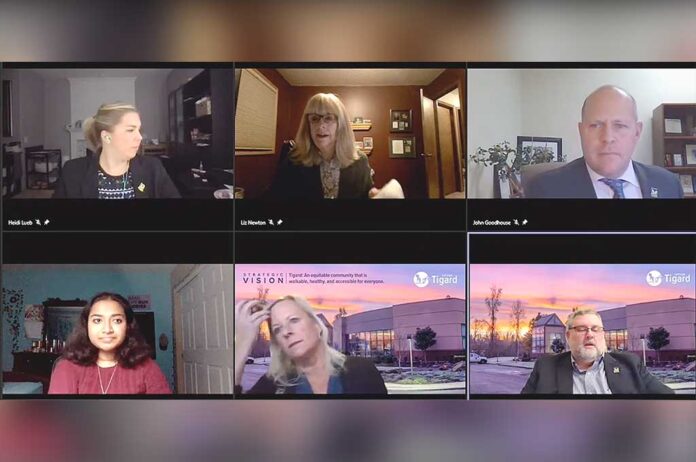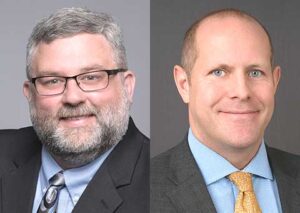Tigard City Councilors are asking for public guidance to help clarify fuzzy language in the City Charter’s explanation of term limits ahead of the upcoming election cycle.
The Charter, which limits combined Mayoral and Council service to 12 consecutive years with no more than 8 consecutive years in either position, fails to elaborate on the specific meaning of “consecutive years,” leaving questions about the length of time out office needed trigger a reset, and further muddies things with a single sentence at the end of its two paragraph explanation: “These limitations do not apply to the filling of an unexpired term.”
Their interpretation could determine Mayor Jason Snider’s eligibility to run for another term in November.
Snider was near the end of his second year of his second four-year term as Tigard City Councilor in 2018 when he resigned to run for Mayor. He stepped down late in the year which left a small gap between his last day as a City Councilor and his first day as Mayor. Another successful bid could push him past the 12-year mark in the coming term.
Both he and Councilor John Goodhouse have their eyes on the 2022 race.
Deciphering various aspects of the directive’s intent has been a recurring question posed multiple times in the past decade.
It was raised anew last fall when Snider and Goodhouse sought clarification from City officials, who in turn tasked Council with deciding.
The heart of the question, Goodhouse recapped to Council on Jan 11, is this: “What is the meaning of consecutive years? Does it mean service for a full year? Is it acceptable to have a break in service to reset the consecutive years calendar? If (someone is) able to have a break in service, how much of a break in service, how much of a break is needed.”
It was the second time in three meetings that term limits were discussed.
“I think the question originally from Mayor Snider, then myself was what really defined a term,” Goodhouse said. “I think what this originally started with was, I know Mayor Snider is looking at whether resigning for a couple days started over the clock of the 12 consecutive years.”
How to and who should interpret the Charter’s intent was the only agenda item at Council’s final meeting of 2021, in which both Snider and Goodhouse recused themselves to avoid a potential conflict of interest and the three remaining Councilors, Heidi Lueb, Liz Newton, and Jeanette Shaw resolved to leave the question for voters in May.
They then changed course Jan. 11 meeting to allow for a longer community conversation.
Because language for the May ballot measures must be finalized by early next month, drafting a measure before the Feb. 7 deadline would have left little time for gathering feedback.
“This gives us additional time to be transparent and talk with the community and have a robust dialogue,” Lueb said. “I feel confident that understanding the question we’re being asked and being able to have robust community dialogue and input, that we’re capable of making the interpretation, which the charter allows and asks us to do as council.”
Ahead of the December meeting, Newton asked city staff to compile related records dating back more than two decades. The resulting 93-page document provided a window into previous conversation and long-standing public opinion.
“The citizens of Tigard, the public, definitely support term limits,” Shaw said. “They turned down a ballot initative that would have extended them.”
In May of 2015 voters defeated two measures, the first would have allowed sitting councilors to run for another city office without resigning their seat, the other would have extended consecutive term limits by four years to 16.
Even more complex is the Charter’s exception to the 12 consecutive year term limit.
“These limitations do not apply to the filling of an unexpired term,” meaning years spent in office serving out the remainder of a vacated position are not calculated. The clause which appears to allow some partial terms to remain uncalculated and others to be counted raises potential inequities.
“Is it a complete term, is it an unexpired term? Does it matter if you’re appointed or elected?” Newton asked.
All questions it will take a larger, more thorough Charter review to resolve, Councilors agreed.
“There’s a lot of questions in regards to our charter,” Lueb said. “I think the only way to (resolve) a lot of the ambiguity is a full charter review.”
Newton concurred that after answering the simpler question of how much time out of office is needed to reset the term limit clock it would be best to “leave some more in-depth review of our charter to a citizen charter review committee.”
For now, Council’s immediate attention remains focused on gathering community input. To learn more on the issue, visit bit.ly/3z908n3. To comment by email CharterReview@tigard-or.gov.























